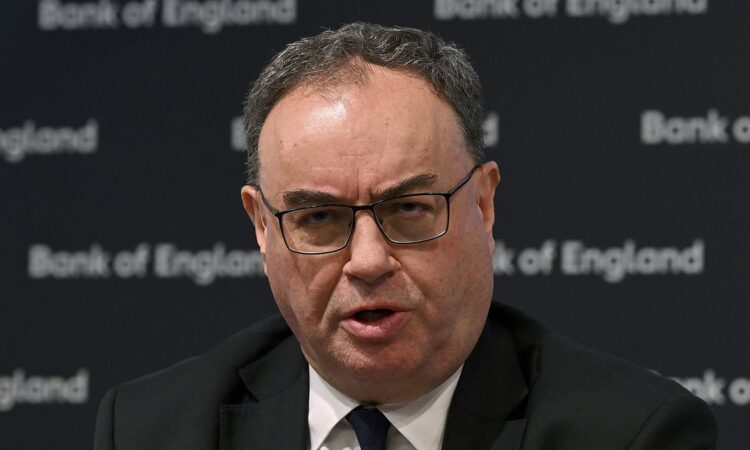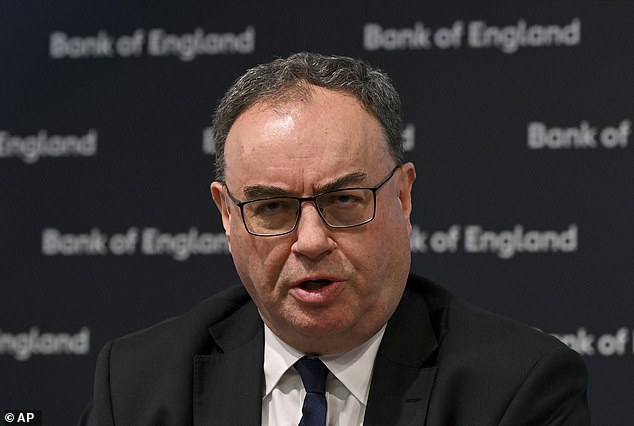
Bank of England governor Andrew Bailey suggested yesterday that the UK’s ‘very small’ recession may already be over – and hinted at interest rate cuts over the summer.
Mr Bailey’s upbeat assessment came after official figures last week showed the economy had shrunk by two quarters in a row at the end of 2023, meeting the definition of a recession.
But he told MPs that it was easily the smallest recession on records going back to the 1970s and that there had already been signs of an upturn.
It came as US investment bank Goldman Sachs predicted that the Bank could slash interest rates to 4 per cent by the end of the year.

Mr Bailey said inflation ‘has come down very rapidly’ while the economy is also enjoying a spell of ‘full employment’ – with joblessness at historically low levels.
‘That is a very good story. Against a lot of talk about what we think is going to be a very small recession, we think the economy is already showing distinct signs of an upturn,’ he added.
Figures showed that GDP shrank by 0.3 per cent in the final quarter of 2023, having previously contracted by 0.1 per cent in the third quarter.
Mr Bailey said while that met the ‘precise definition’ of a recession, over the course of the two quarters the decline amounted to just 0.5 per cent.
‘If you look at recessions going back to the 1970s, this is the weakest by a long way,’ he added.
In previous downturns, the economy had shrunk by between 2.5 per cent and 22 per cent.
Deputy governor Ben Broadbent has even suggested that future statistical revisions could mean the recession never took place.
However, the Bank has been criticised for taking too long to cut interest rates.
Former chief economist Andy Haldane said this week that it risked crushing the economy, while Tory MP John Baron said the economy was ‘flashing red’.
Rates have been hiked to 5.25 per cent as the Bank battles inflation, adding hundreds of pounds to monthly mortgage bills.
But with inflation now at 4 per cent – and the Bank targeting 2 per cent – markets are betting that a cut will come within months.
Traders see the first cut coming in June and rates dropping to 4.5 per cent by the end of the year, with Goldman Sachs predicting even faster falls.
Mr Bailey did not endorse the predictions but said ‘it’s not unreasonable’ for traders to pencil in rate cuts.





